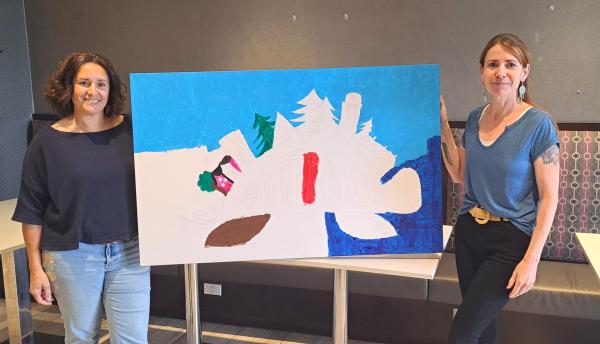A path to connection and healing: Mi’kmaw Indigenous Navigators focused on creating culturally safe patient care

Nova Scotia Health has created Mi’kmaw Indigenous Navigator roles across the province - two are based in Central Zone - to help improve healthcare access and experiences for Mi’kmaw and Indigenous people. Jacquie Potvin-Boucher and Stephanie Francis are working to bridge understanding between patients and providers; an action that is long overdue.
As Indigenous women with lived experiences, Francis and Potvin-Boucher bring a cultural perspective to their work. "It's important to have Indigenous people in these roles who understand the trauma and barriers our communities face," said Potvin-Boucher. “Many of these patients need a little more clarification or detail and more openness and transparency, so that they can begin to feel like they’re part of their own healthcare plan.”
She and other new navigators in each zone are addressing longstanding barriers and building trust through advocacy, education and relationship-building. An important part of their role is supporting patients by attending appointments with them and helping ensure their needs are understood.
"We want Mi’kmaw and Indigenous patients to feel welcome and know that we're here to support them through their healthcare journey," said Potvin-Boucher. “We can be a voice that articulates the spiritual aspect of healing and connection – the two-eyed seeing approach to care – and help clinicians understand the need to move beyond just the Western medical approach to help people who may live with multigenerational trauma.”
As an example, the navigators are working with staff at Dartmouth General Hospital to implement smudging and incorporate traditional healing practices. They are also connecting with Indigenous communities through outreach events. An artist and therapist, Potvin-Boucher said that incorporating art and storytelling can help empower patients and foster more culturally safe care.
By taking a holistic, patient-centered approach, the new navigator roles are working to make healthcare more accessible and meaningful for Indigenous people. Their community-focused model aims to better address the unique needs of Indigenous patients. “It will take some time, but we hope to build connections that will aid in healing.”
Photo of Central Zone's Mi'kmaw Indigenous navigators Stephanie Francis (left) and Jacquie Potvin-Boucher hosted a coffee conversation and creative arts session at The Bridge on June 24. The art piece representing Turtle Island will be completed at the next session in July.